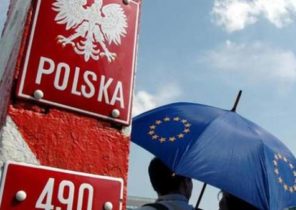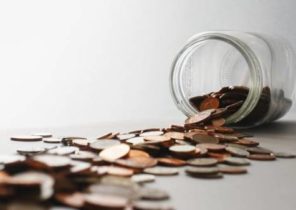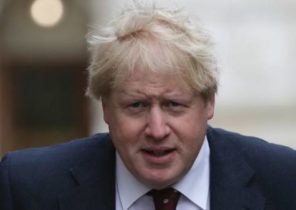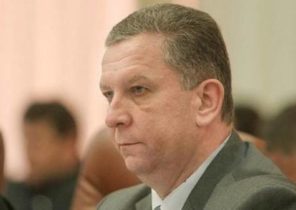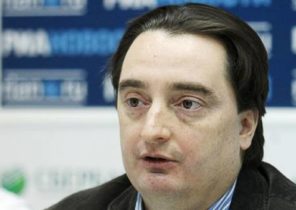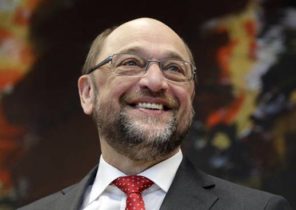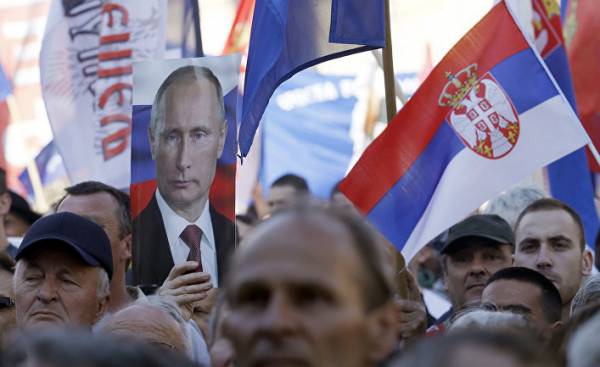
2 April in Serbia, the election of the President of the Republic. The victory, most likely in the first round, predict the current Prime Minister of the country Alexandru Uucico — in opinion polls he is an unquestioned leader.
The elections in Europe are looking with anxiety, speaking about the growing influence of Russia and Pro-Russian sentiments in Serbia. It could feel high representative of the Union for foreign Affairs Federica Mogherini, during a speech in the Serbian Parliament in early March, the Pro-Russian faction of the radicals was met with cries of “Serbia! Russia! We don’t need the EU!”
The President of the European Parliament Committee on foreign policy David McAllister (David McAllister) a few days later stated that “Russia is deliberately pursuing in Serbia the strategy of tension”. But experts interviewed by DW, this assessment does not agree.
The best conversations
“Nonsense,” called the statements of McAllister, a Russian expert of the Institute of Europe, Pavel Kandel. “In Europe, starting with the Ukrainian crisis, talking about the Russian threat to the Balkans. These conversations are supported and in the capitals of the Western Balkan countries, and some political analysts in Moscow say, even in the West recognize Russian power. But these conversations did not correspond to reality,” — said Kandel.
In his opinion, the idea that “Russia poses far-reaching aims in the Balkans, as it seems to many in the West, is completely wrong”. The interest of Russia to the Balkans, says Kandel, largely limited to the interests of a private oil and gas industry. Thus, the Russian state company “Gazprom” belongs more than half of the stock power company “Nafta Industrija Srbije” (“NIS”), which contributes about 17 percent to the Serbian budget, adds the expert of the Berlin Foundation “Science and politics” Dusan Reljic.
“Gazprom” does not skimp on advertising in Serbia
Facts talk about the great influence of Russia in Serbia is not confirmed, continues Kandel, citing the following examples: “60-70 percent of the trade of Serbia with the EU, and only 6-7 per cent, from Russia. A similar ratio in the investment, banking, media”.
But talk about the great influence of Russia, according to Candela, being because profitable as Brussels, so as to distract from domestic problems, and the rest of the sides: the “Balkan leaders is beneficial to stimulate the frozen European integration, showing (to Brussels. — Ed.) if you will not move, then we have where to go. In Moscow, narrow-minded minds, too, benefit from these conversations as the recognition of Russian power”.
Symbolic capital
However, experts agree that Russia recently in Serbia has accumulated considerable symbolic capital. “All the Serb parties, even from opposing camps, understand: in order to perform successfully in the elections, it is necessary to go to Moscow and take a selfie with Putin. It can already be seen in several recent elections, it is natural” — says the expert of the Institute of Europe RAS.
However, to convert the sympathy into real political dividends difficult. “Growing sympathy for Russia — but for some reason the people who sympathize with her, vote for Vucic, and not for the parties that present themselves as more Pro-Russian,” says Kandel. These parties are marginal, and the chances that they will come to power, little, predicts expert at the Institute of Europe RAS.
Serbia is a country where public opinion is fragmented, says Relic: “There is a part of the population that sees traditional ally Russia. But there is a part of the population that is highly critical of Putin’s system, precisely because of his position in the protection of human rights, democracy in Europe do not share.”
Kosovo map
In addition, the symbolic capital is Moscow another important bargaining chip in negotiations with the Serbian leadership, the veto power of Russia in the UN security Council, which it repeatedly blocked the accession of partially recognized state of Kosovo in the UN. “Any government of Serbia, regardless of his relationship to Moscow, will take into account this fact,” — said Relic.
Serbia is negotiating to join the EU in 2014, but so far have agreed on just two articles. Promotion hinder its position on Kosovo and the problems in the economy of the country. (07.03.2017)
“The Balkan route” is closed, but the business of smuggling is thriving
Serbia — the country of illegal arms
Russian spies in Serbia is just a PR stunt Prime Minister Vucic?
Serbia, like Russia, does not recognize Kosovo as an independent state. Moscow is ready to continue to play this card, adds Kandel, and bid with Brussels it “for Belgrade clearly not excessive”.
EU Serbs seem less attainable
The weakening of the EU in Serbia is temporary and opportunistic in nature, argues Dusan Reljic: “Trust in the EU has fallen, especially after Brexit. The region is still sharper than in the EU, felt the effects of the financial crisis of 2008. Many are unhappy with the immigration policy of the EU. The flow of migrants is from countries-EU members Bulgaria and Greece to Serbia, stuck there. And the Serbian population believes that there is insufficient support from the EU”.
Today about 45 percent of Serbs support joining the EU, the negotiations began five years ago. The EU is becoming less achievable, and the conditions of reconciliation with Pristina many seem to be unfair, says the expert of the Foundation “Science and politics”. But the situation may change: “If we accelerate the convergence, and the number of supporters (of Serbia joining the EU. — Ed.) grow.”
In any case, after the election, Vucic President of any changes in the foreign policy of Belgrade should not wait, largely because of the position of the EU. Brussels, the conviction of the respondents DW experts, not soon will be ready to invite Serbia to join the EU. In Serbia “will continue the same policy of balancing, although the balance is not in Russia’s favor, rather in favor of Brussels,” said Kandel.
